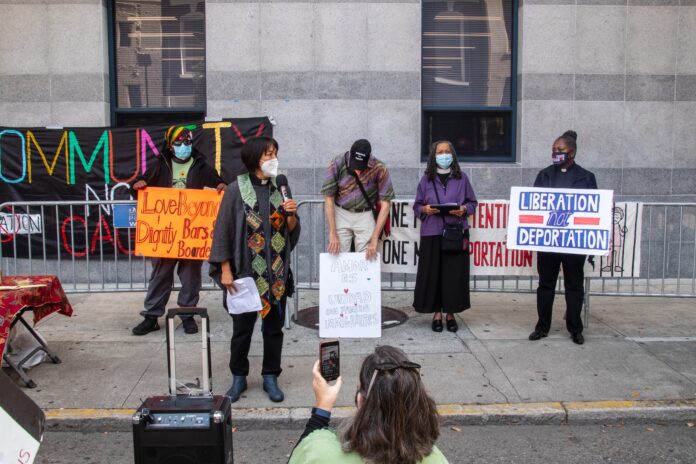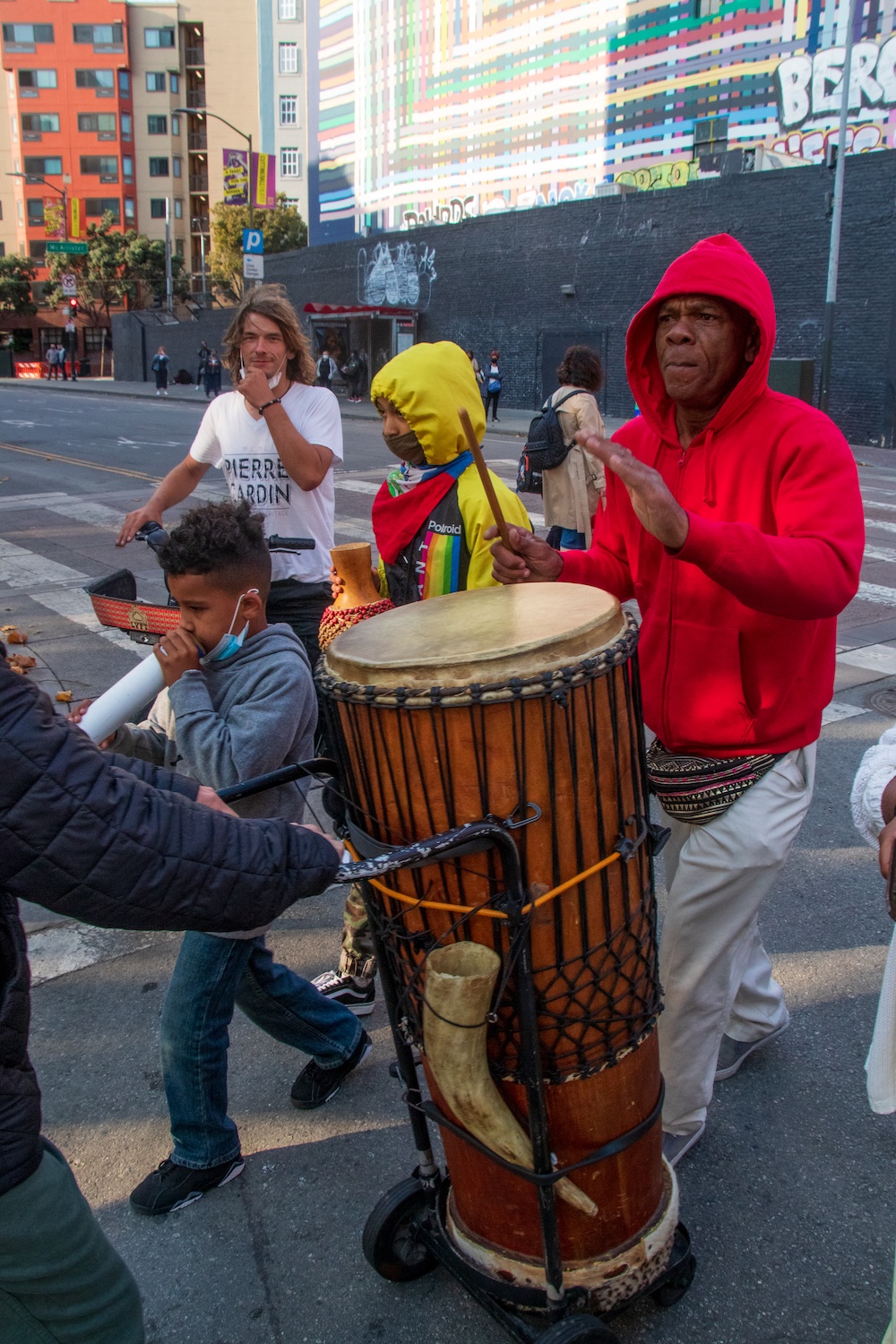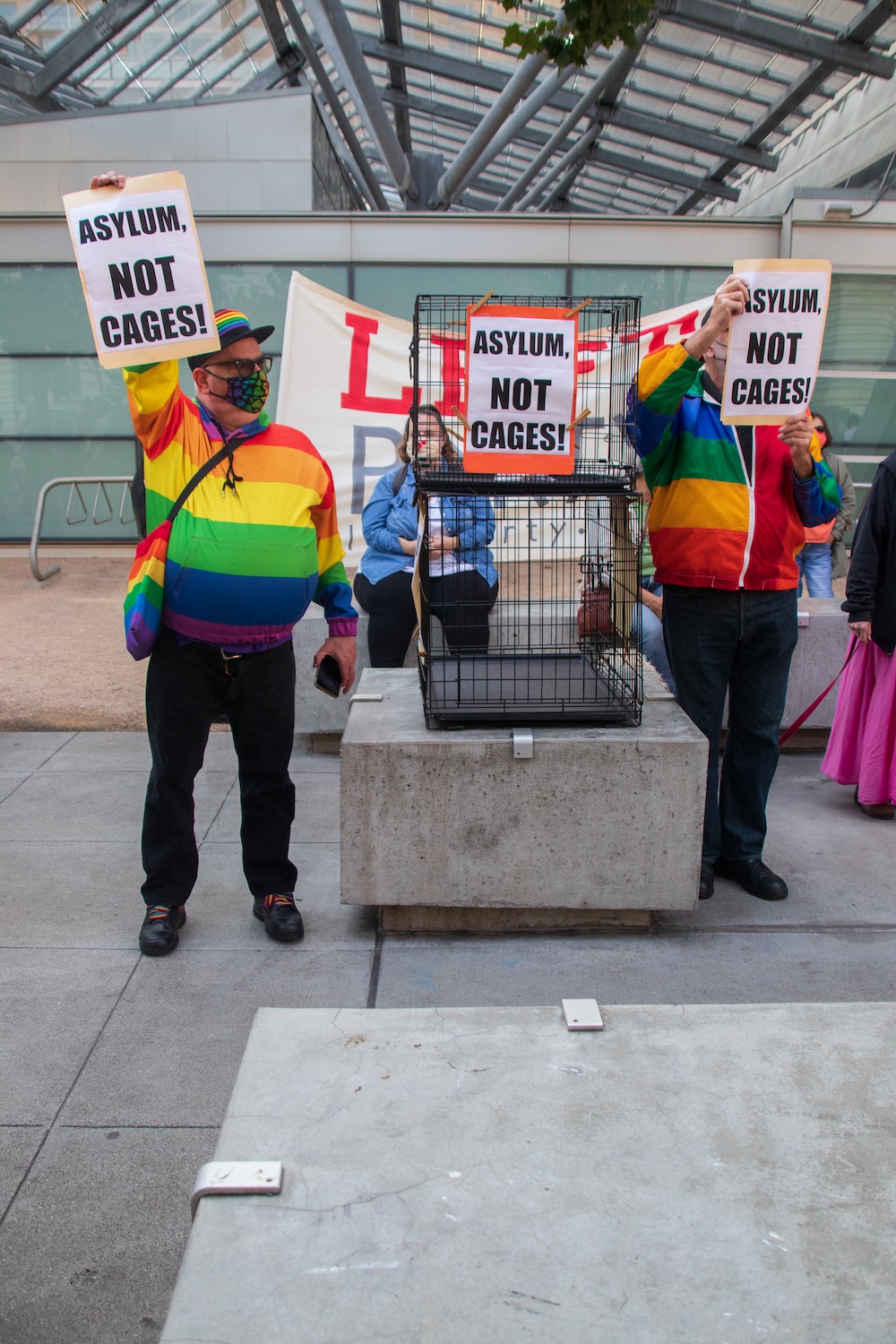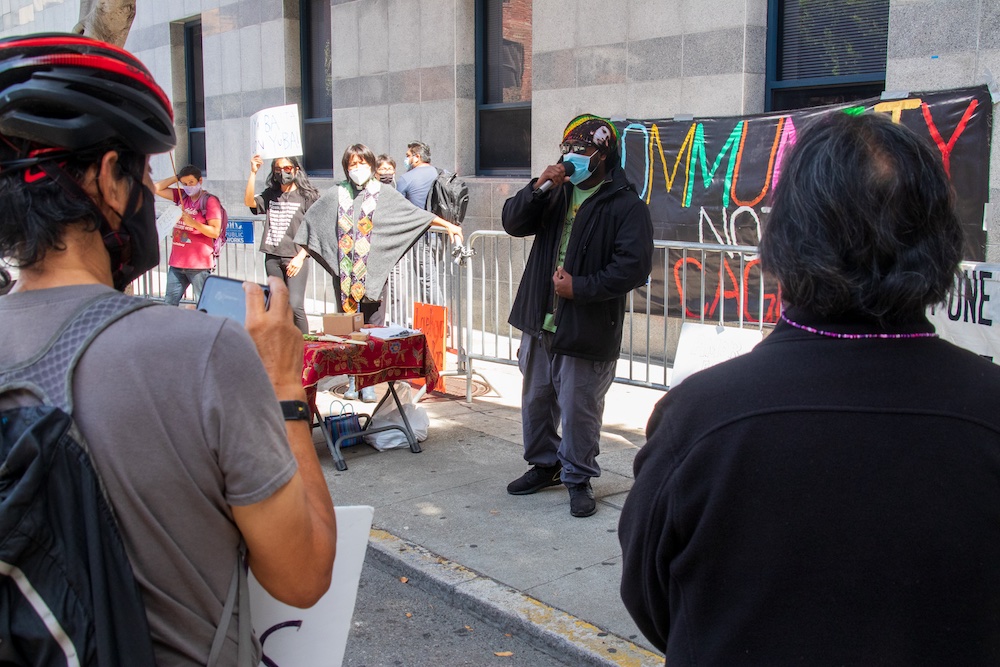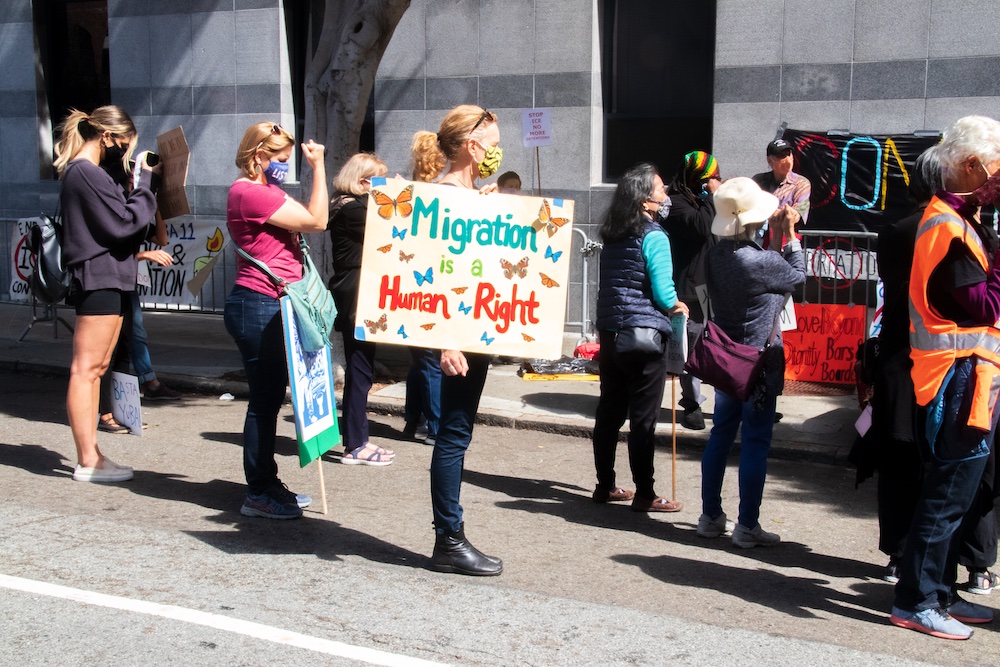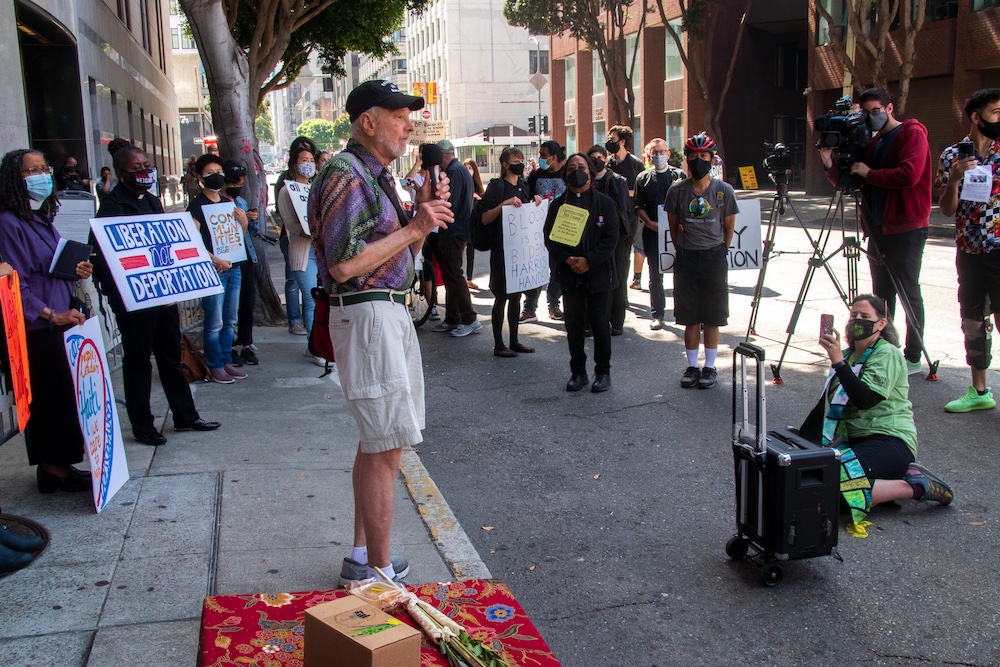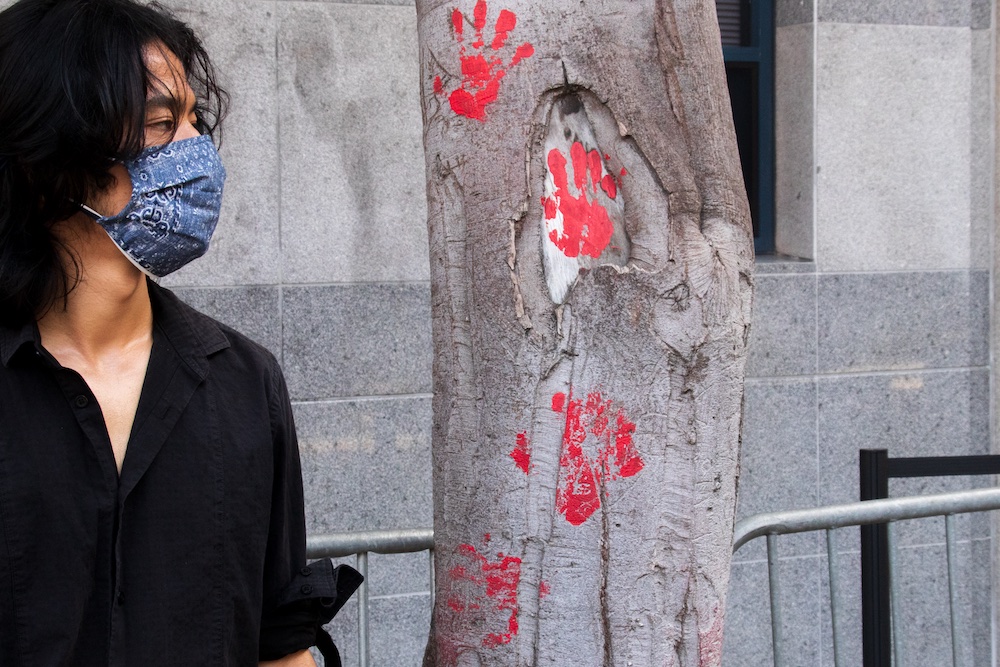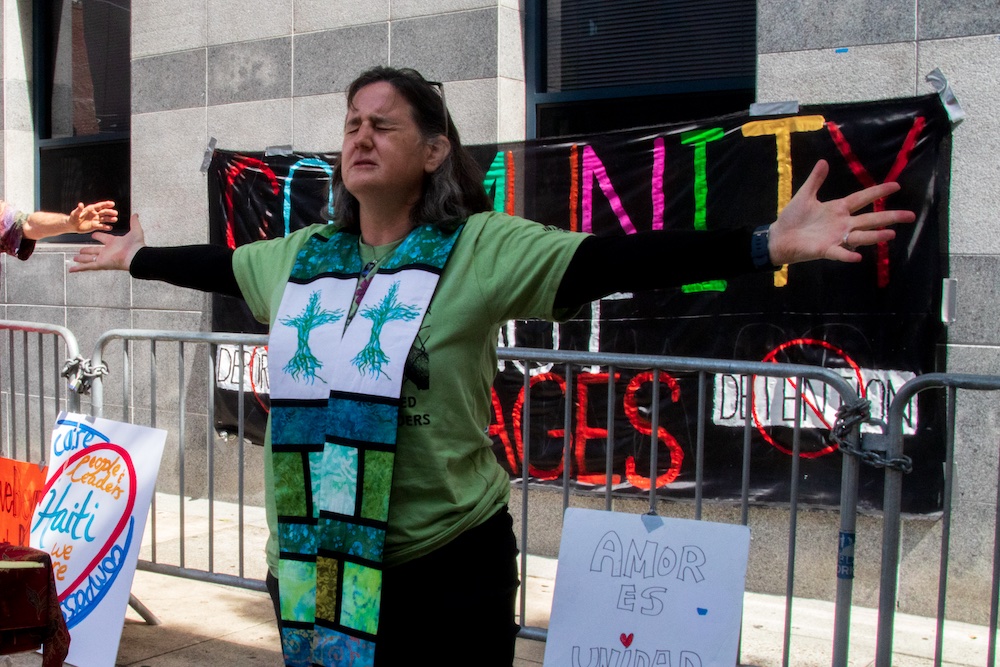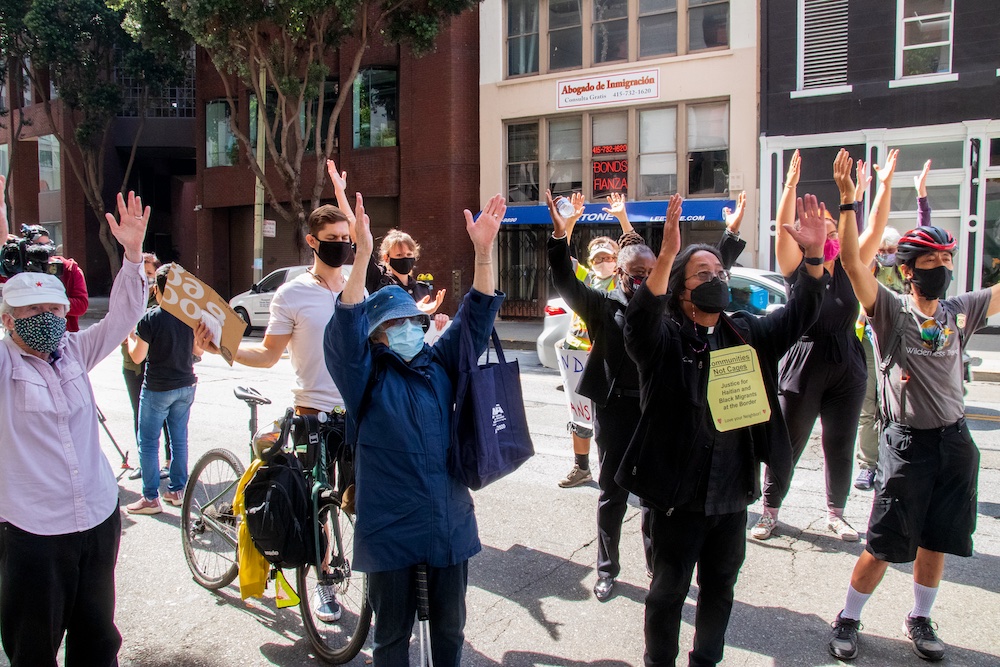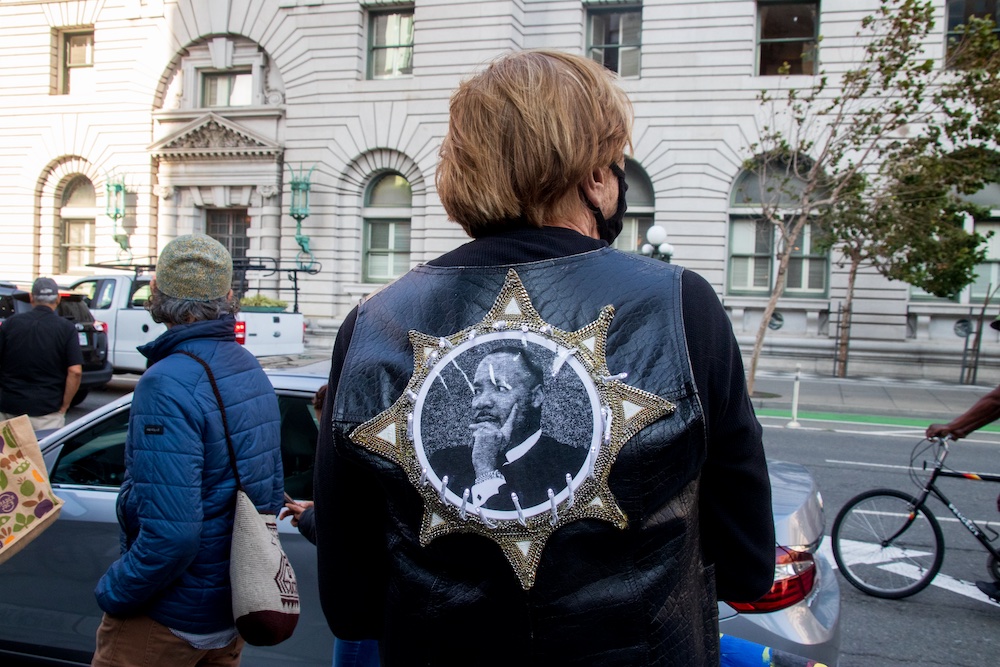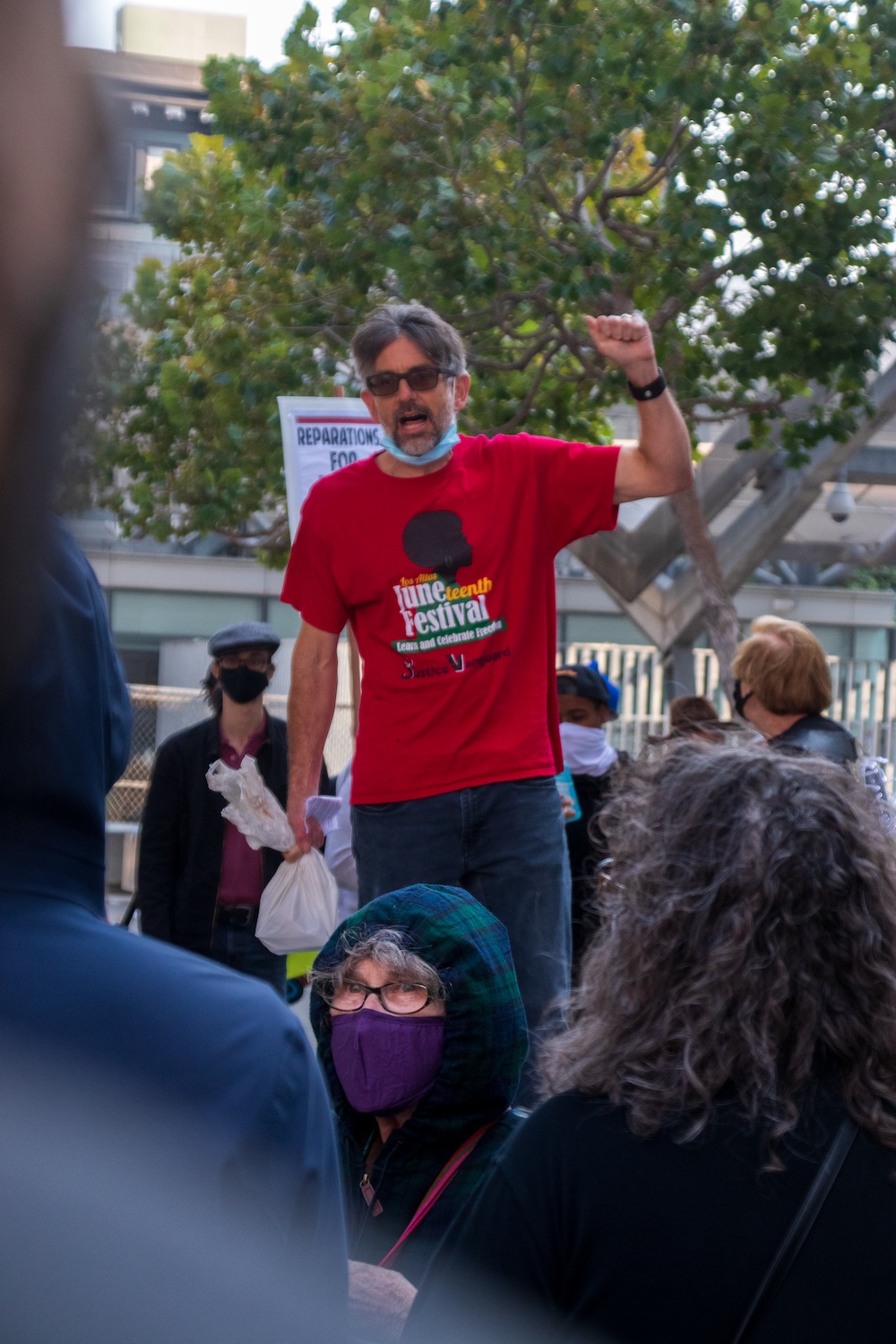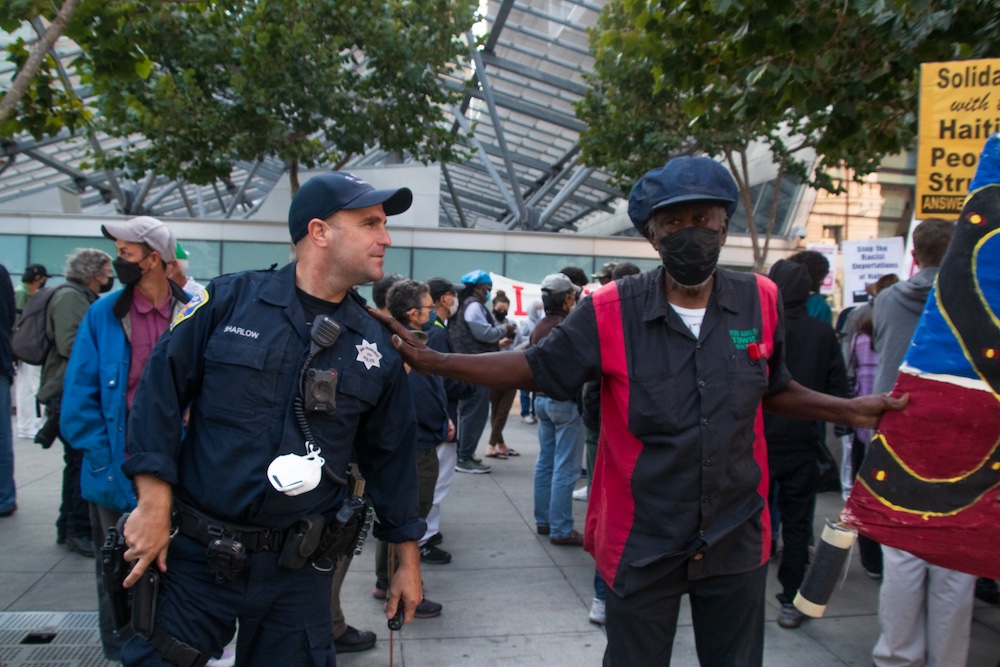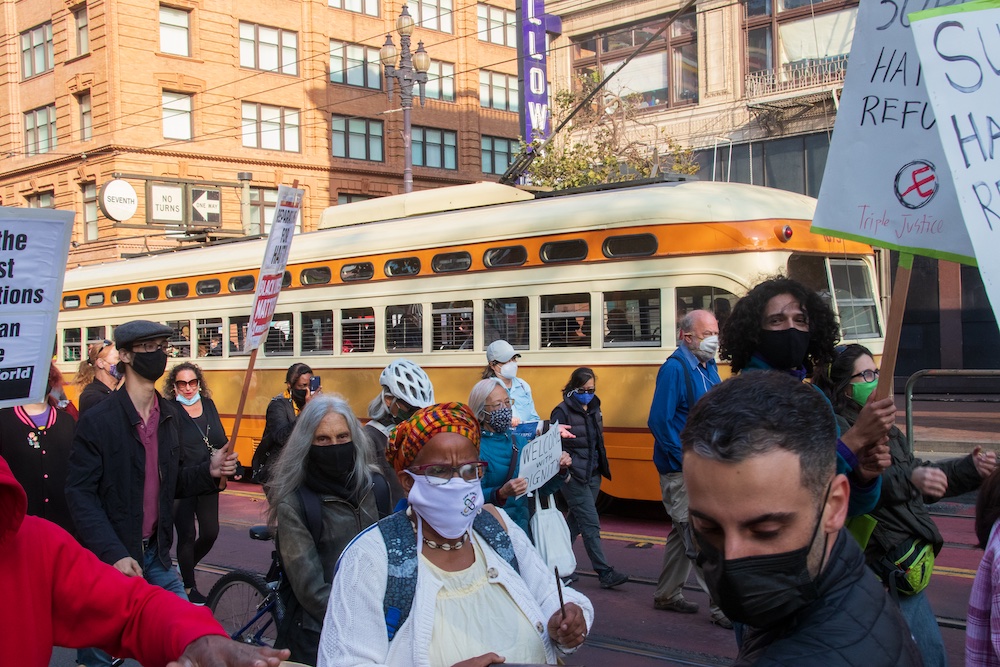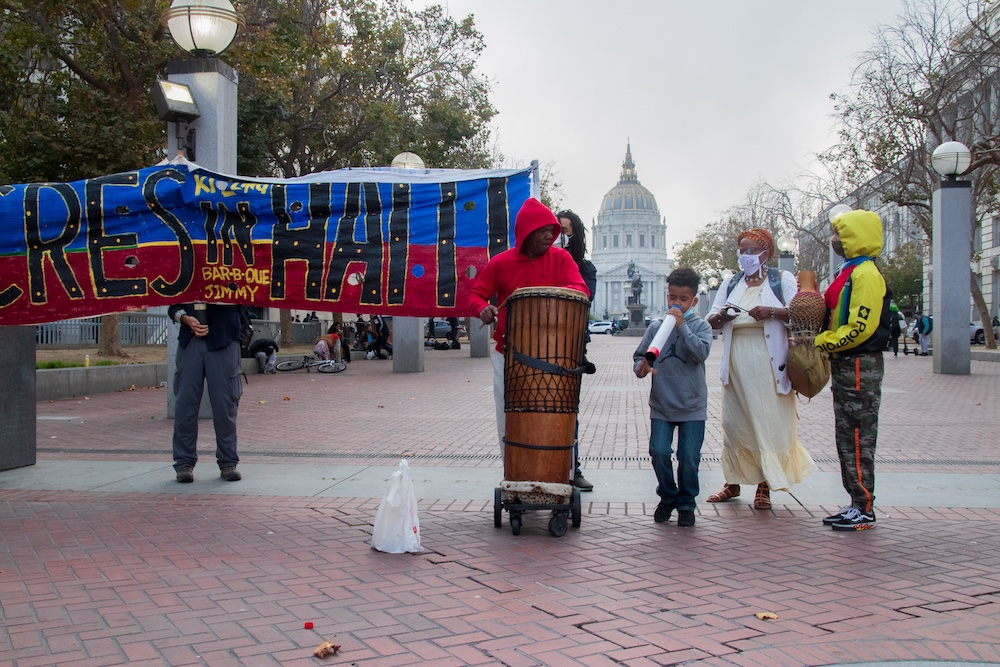There was a party in the middle of Castro Street the day Joe Biden was officially declared the winner of 2020’s closely-watched presidential election. Perhaps the city’s famous progressive edge would dull in the “return to normalcy” administration.
But eight months into his term, a series of actions on the part of the Biden presidency has only invigorated it. The Trump administration’s hardline stance on immigration has continued under the current one. Haitian refugees—fleeing the damage left by an earthquake and Hurricane Grace—are being stopped at the border of a country that refuses all sympathy, and thousands have been sent back to a devastated country. Photos and videos released earlier this week show Border Patrol agents on horseback berating, grabbing, and pushing Haitian migrants at the border. At least one agent appeared to use his reins as a whip. If the honeymoon period hadn’t already ended, it certainly has now.
On Thursday the ICE headquarters on Sansome Street was picketed, as it was so often during the previous presidency. Organized by the Interfaith Movement for Human Integrity and immigration activism groups, it was modestly attended but passionate. Congregant Susan Lang elucidated the viewpoint of the Interfaith Movement—immigration is “a human issue, not a political issue.” Deborah Lee, executive director of the Interfaith Movement, expressed her feeling of betrayal in Biden breaking his promise to end violent immigration enforcement. Charles Joseph—or “Bula”, which is Fijian for “life”—sang a Tongan tune “calling for fire,” as in energy, fire to the feet of the people.
Long-time organizer Charlie Hinton, of the Haiti Action Committee, spoke of the history of Haiti, which is marred by violent political upheavals and natural calamities. Hinton has a pedigree, he majored in Latin American studies, served for three years in Bolivia with the Peace Corps, and visited Haiti in 1994 and 2004, at the end of the first coup and the beginning of the second against Jean-Bertrand Aristide, the nation’s first democratically elected president. At the end of the gathering, Rev. Allison Tanner led the demonstrators in a prayer.
Friday saw a bigger demonstration in front of the Federal Building on 7th Street, where Nancy Pelosi has an office. The mood at this more crowded protest was even more fiery, the actions of revolutionaries rather than disaffected progressives. Charlie was present again, handing out literature instead of speaking. Francis Collins, toting around a guitar, wore a jacket with MLK’s face. “I wear it wherever I think he would go,” he says. Tacuma King, on an ngoma drum and joined by a few flautists, and later still by his wife and two children, played rara—a Haitian musical form for street processions. Frank Chu even made a brief appearance. The march—“end the occupation / of the Haitian nation”—was surprisingly short, just up the block from the federal building to United Nations Plaza.
The speeches of those two days were not empty words. The Interfaith Alliance regularly visits the ICE detention center at Yuba County Jail, the last in California with an “intergovernmental support agreement,” a contract allowing local jails to hold detainees on behalf of immigration authorities (including ICE), for which the prison receives a stipend. Their work, among those of other groups, saw the number of detainees at Yuba drop from eleven to two: Ricardo and Luis, whose names were invoked several times across multiple speeches.
King, in addition to being a musician, is also the director of Bay Area Youth Arts, through which he raised 5,000 dollars to build two schools in Haiti. The Bay Area is often criticized by the left as being a place more concerned with the optics of progressivism than to the actual work. But if anything, the activists dedicated to real change are a vibrant and valuable resource. The real work is not glamorous, or attention-seeking, at least not until the right moment calls for it.


